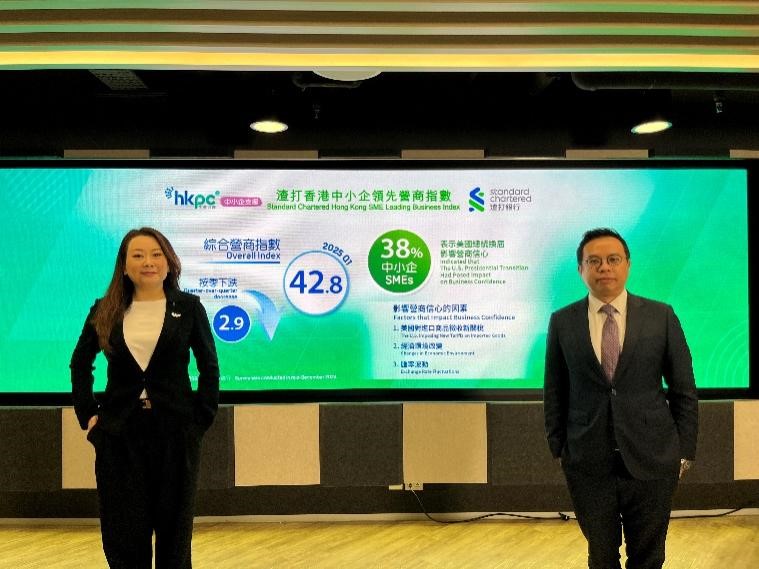
More than 90 percent of small and medium-sized enterprises (SMEs) in Hong Kong will “maintain or increase investment” in the first quarter, pinning hopes on digital transformation to enhance business competitiveness amid global economic uncertainties, according to a survey.
The Standard Chartered Hong Kong SME Leading Business Index, which was published by the Hong Kong Productivity Council (HKPC) on Thursday, showed that 93 percent of surveyed SMEs intend to maintain or increase investment this quarter. The proportion is on a par with that in the previous quarter.
The findings are based on interviews with over 800 local SMEs from manufacturing, foreign trade, wholesale, retail, accommodation and catering services, information and communications, finance and insurance, professional and business services, real estate, and construction as well as other sectors.
Most businesses plan to put most of their resources into digital transformation, with key areas including training related to e-commerce or digital technology, IT systems, research and development and online marketing promotion.
ALSO READ: HK SMEs display confidence amid tariff concerns
This trend among SMEs “highlights the importance of digital transformation in enhancing business competitiveness”, said Karen Fung, chief marketing officer and general manager of InnoPreneur and FutureSkills of HKPC.
Concerns over the impact of China-US trade tension under Donald Trump’s administration on the Hong Kong Special Administrative Region’s economy are mounting. Smaller firms in the city are becoming more conservative in their business outlook, with the overall index in the first quarter declining by 2.9 to 42.8 from the previous quarter.
A reading above 50 reflects optimistic sentiment, while that below 50 indicates pessimism.
Two of the five component sub-indices — recruitment sentiment and investment sentiment —showed slight increases, posting 50.8 and 49.6 respectively. They have hovered around the 50 neutral line over the past two years, indicating relatively stable performance.
ALSO READ: Hong Kong’s pivotal role in global trade reaffirmed amid headwinds
Global economy, business conditions and profit margin sub-indices, which are more reflective of immediate business performance, showed a quarter-on-quarter drop, returning to the level observed in the third quarter of 2024.
“Local companies’ appetite for hiring and investment improved quarter-on-quarter,” said Kelvin Lau Kin-hang, senior economist of global research for Greater China at Standard Chartered Bank Hong Kong. The situation chimed with the bank’s forecast that the Hong Kong economy’s growth momentum is expected to stay modest in the coming quarter.
Following Trump’s return to the White House, nearly 40 percent of surveyed SMEs said that the US presidential transition had impacted their business confidence, with about 60 percent of them citing new tariffs and changes in economic environment as the primary factors.
In light of potential shifts in the business environment, over 70 percent of surveyed SMEs indicated that they had implemented strategies to mitigate risks, such as exploring more diverse suppliers, enhancing employees’ knowledge and skills, and expanding into new markets.
READ MORE: HK’s strengths hailed following ranking as world’s freest economy
“As the HKSAR government will announce the 2025-26 Budget next month, we anticipate additional local business-friendly measures in supporting SMEs,” Fung said.


